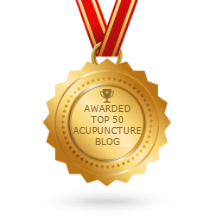How Acupuncture and Chinese Herbal Medicine help Insomnia
Previously, we discussed how to help yourself get a better night of sleep here and here. Today we will discuss how Acupuncture and Chinese Herbal Medicine help Insomnia.
It is estimated that 50 to 70 million Americans chronically suffer from a disorder of sleep and wakefulness, hindering daily functioning and adversely affecting health and longevity(NH1B1 2003). Researchers have found that restful sleep has incredible benefits: it makes you mentally sharper; increases your ability to concentrate; makes you a more focused worker; maintains healthy blood pressure; reduces inflammation, decreases susceptibility to heart disease and cancer, decreases likelihood of weight gain, helps your mood, energy, and ability to handle stress.
Commonly, Western Medicine usually prescribes sleeping pills and anti-depressants for insomnia and other sleep disorders. These medications can become addictive and patients can find it difficult to sleep naturally without pills in the future.
Fortunately, Acupuncture & Chinese medicine can be very effective for nearly all causes of sleep disorders and insomnia. Before treating insomnia, we strongly recommend that everyone make lifestyle changes which we listed tips previously. Many times a change in the environment or a change in habit is all that it takes to help you achieve a better sleep.
Other times insomnia is caused by medical issues such as allergies, musculoskeletal pain, anxiety, digestive disorders, hormonal imbalance, hot flashes and more. We usually first treat those medical issues before treating insomnia using Acupuncture and Chinese Medicine.
Chinese medicine recognizes that insomnia can stem mostly from a functional imbalance of Heart. The Heart houses the mind and governs the strong influence of emotional stress. In order for the mind to settle and sleep to occur, the heart must be calm, balanced and functioning normally. Anything that disrupts the heart or fails to be supplied by Qi and blood will affect the quality of sleep. Of course, other organs must function normally for healthier sleep to occur since each organ has a different aspect of our spirit. The heart, for example, relies on the other spirits to support its mastery.
The most effective treatment for insomnia is Acupuncture combined with Chinese Herbal Medicine. Insomnia has many patterns of disharmony. The common Chinese Medicine patterns of insomnia are Deficiency(inability to provide adequate residence or confidence for the spirit) and Excess(impending or agitating the spirit).
Treatment will not cause a desire to sleep during the day. In addition to insomnia, you may also experience improvement of anxiety, palpitation, frustration, memory loss or mental confusion, dry or itchy skin and pain in the chest or ribcage.
If you suffer from insomnia, Acupuncture and Chinese Herbal Medicine is a great alternative way to help you achieve restful sleep. Give us a call at 972-671-6688 or email us in the contact form.




